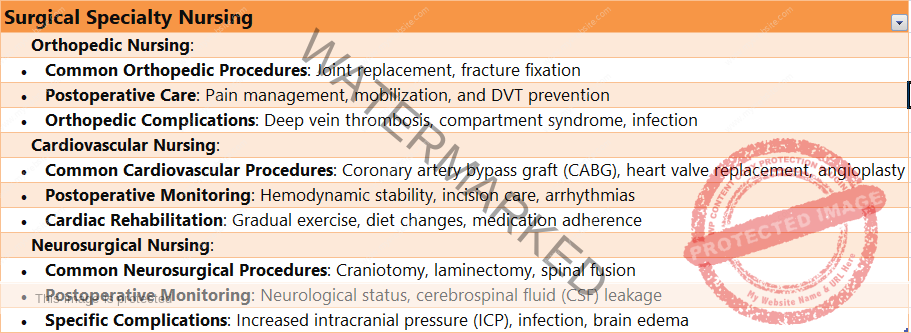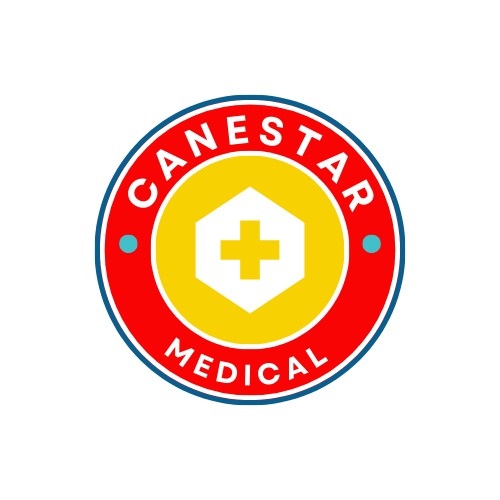Most Important Nursing Cheat Sheet
Advanced Cardiac Life Support (ACLS)
Advanced Cardiac Life Support (ACLS) is a set of clinical interventions for the urgent treatment of cardiac arrest, stroke, myocardial infarction, and other life-threatening cardiovascular emergencies. ACLS is typically used in hospital settings or by emergency medical services (EMS) personnel.
ACLS builds on Basic Life Support (BLS) with additional skills and algorithms that include:
- Airway Management: Intubation, supraglottic airway devices, and other techniques to maintain an open airway.
- Pharmacology: Knowledge of medications used in resuscitation, like epinephrine, amiodarone, or adenosine, and their appropriate dosing.
- Defibrillation: The use of automated external defibrillators (AEDs) and manual defibrillators to treat arrhythmias like ventricular fibrillation and pulseless ventricular tachycardia.
- Cardiac Monitoring: Interpretation of cardiac rhythms to guide treatment.
- Team Dynamics: Effective communication and role distribution among healthcare providers during resuscitation.
- Post-Resuscitation Care: Managing patients after the return of spontaneous circulation (ROSC), including targeted temperature management, sedation, and hemodynamic support.
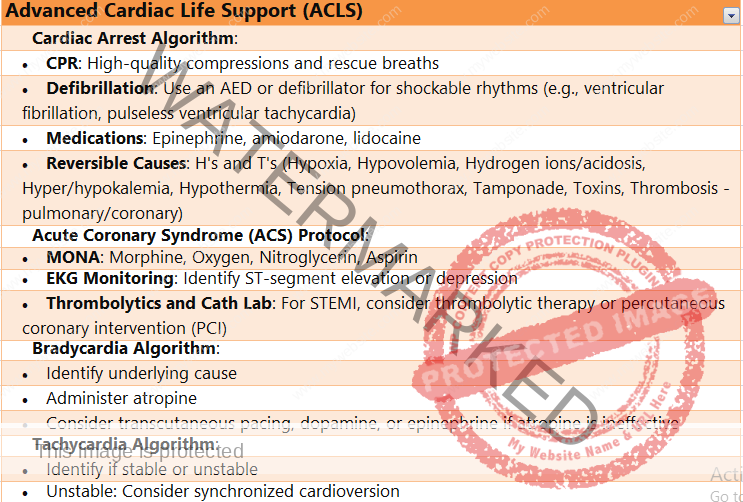
Geriatric Nursing Considerations
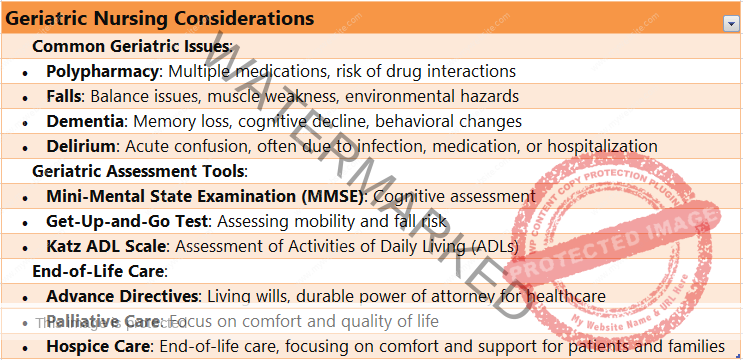
Professionalism and Ethical Considerations
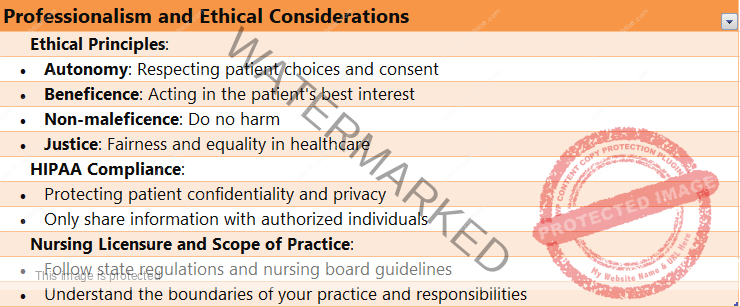
Fluid and Electrolyte Imbalances
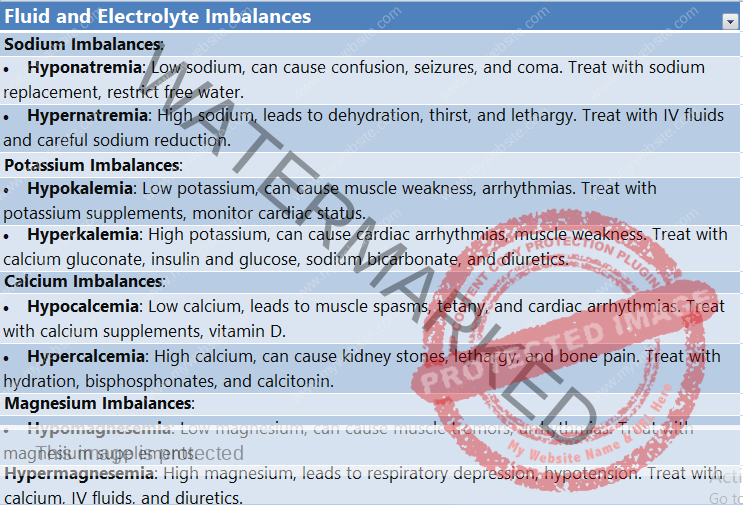
Pediatric Medication Safety
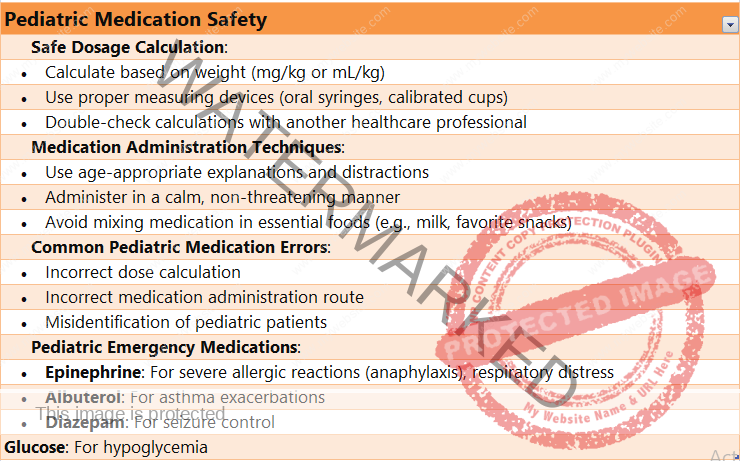
Nursing Care for Specific Populations
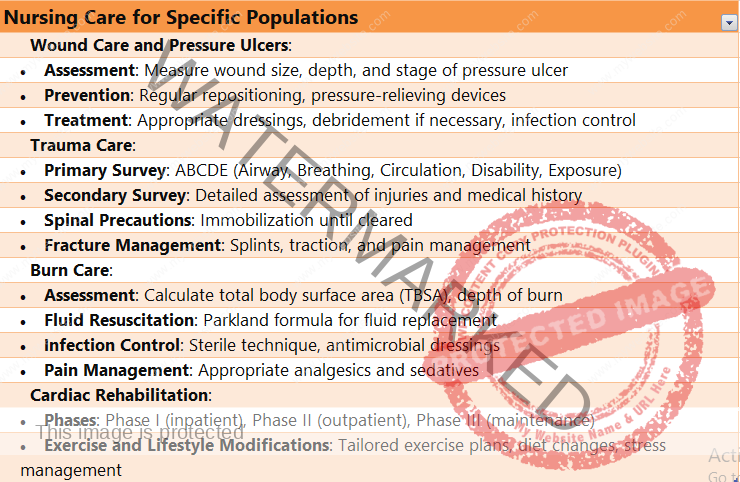
Psychiatric Nursing and Mental Health Care
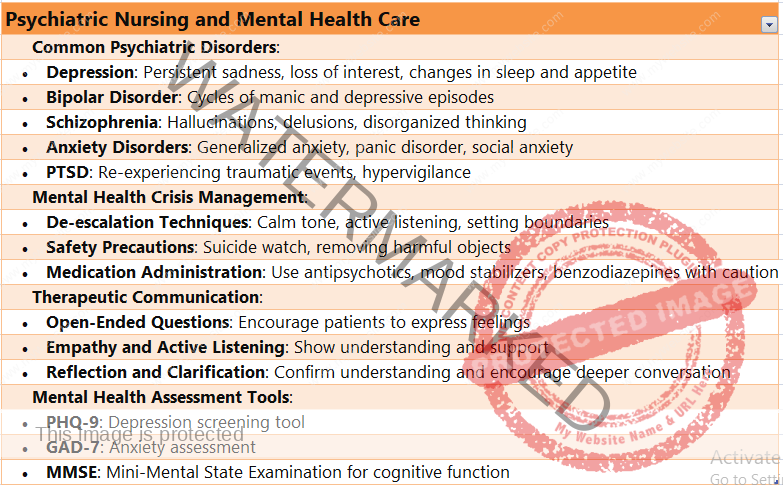
Maternity and Newborn Nursing
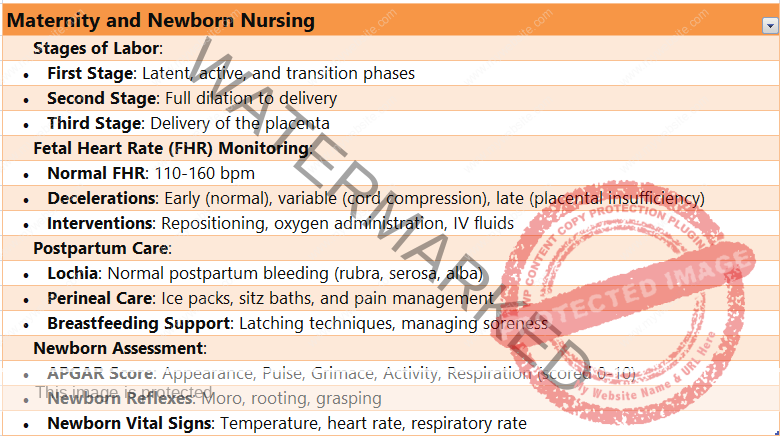
Pain Management Strategies
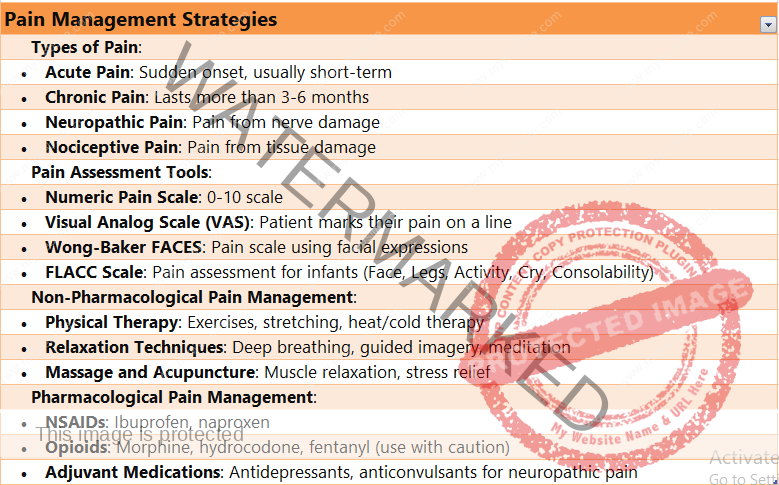
Infection Prevention and Control
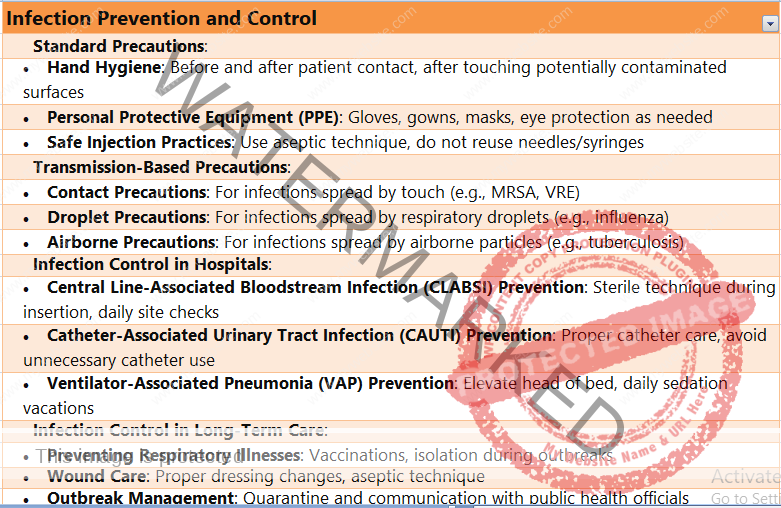
Advanced Healthcare Technology
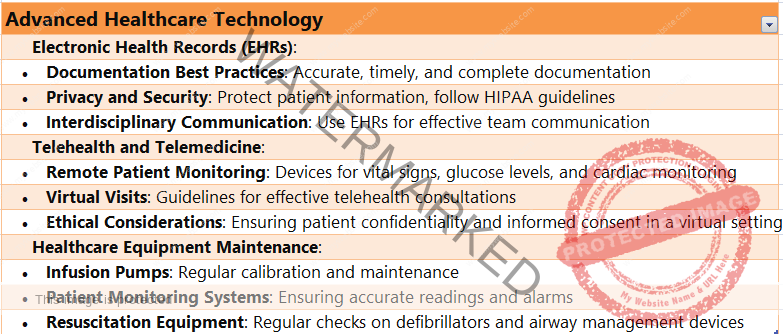
Chronic Disease Management
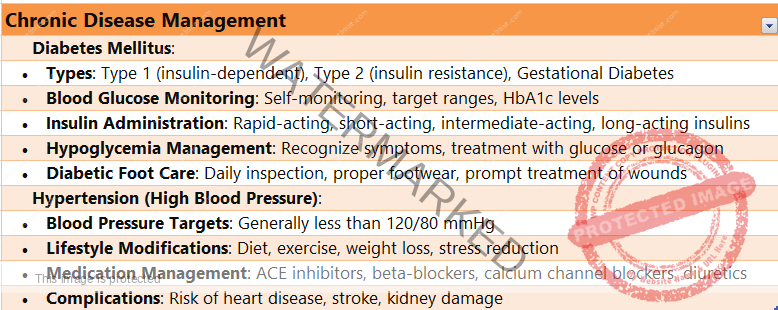
Geriatric Care and Considerations
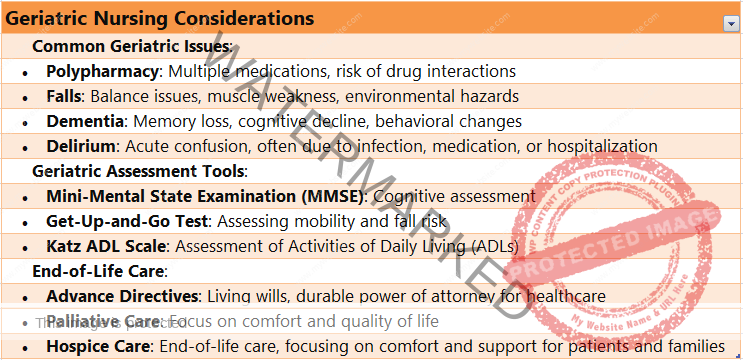
Preoperative Nursing
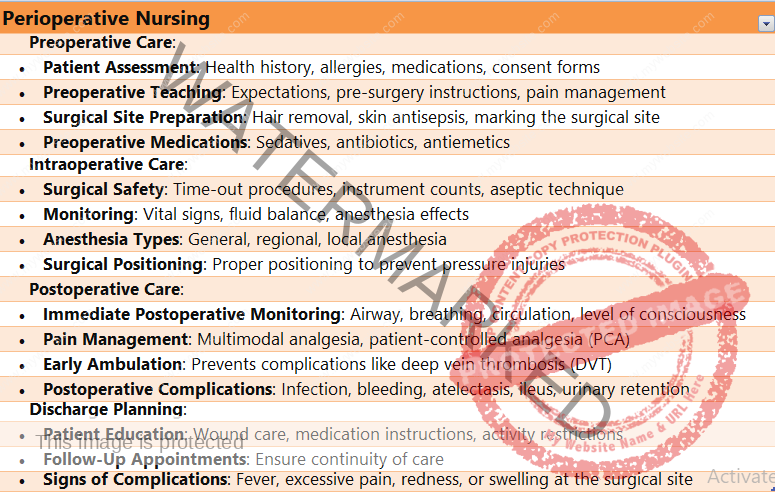
Emergency Nursing and Trauma Care
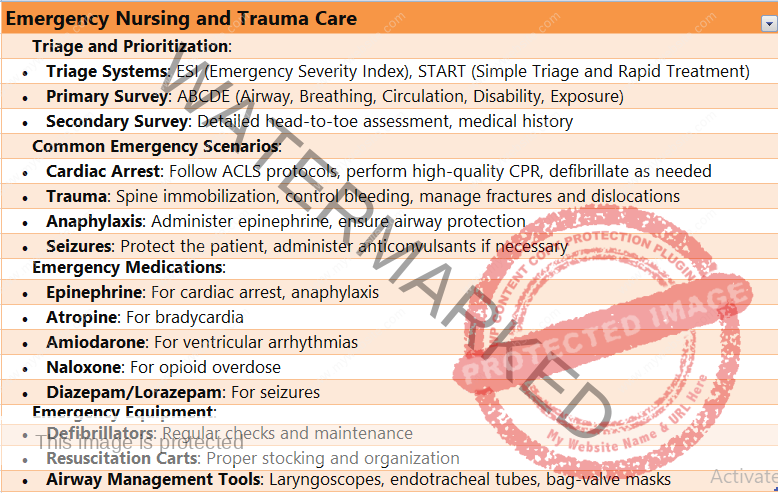
Palliative Care and Hospice Nursing
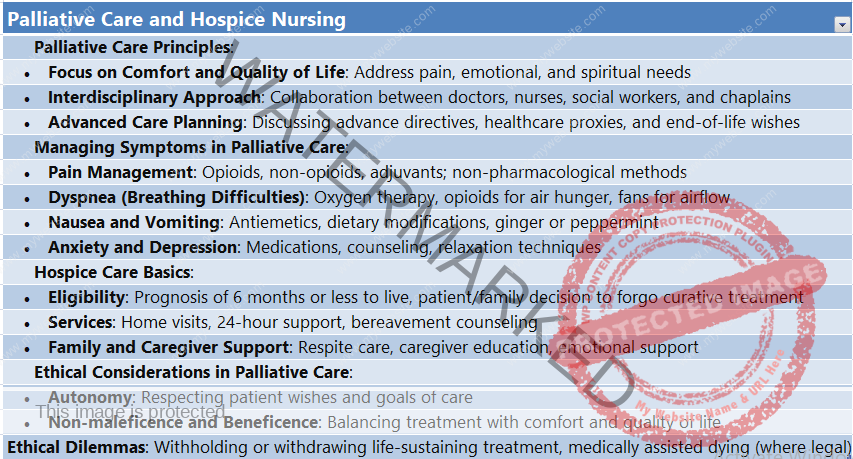
Oncology Nursing
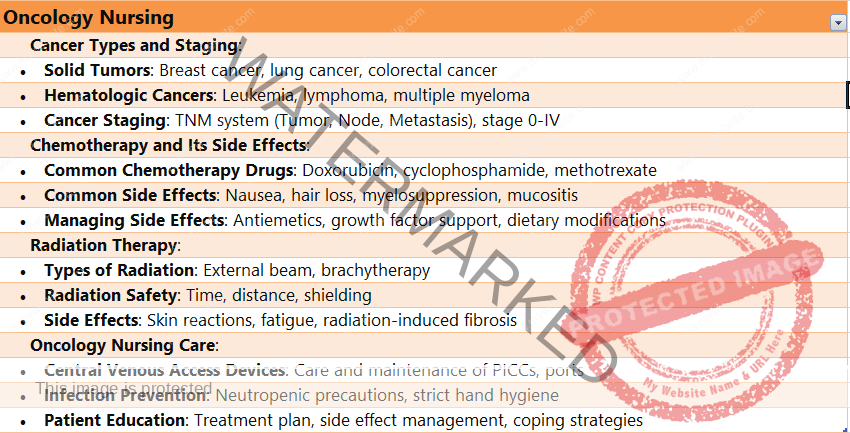
Patient Education and Communication
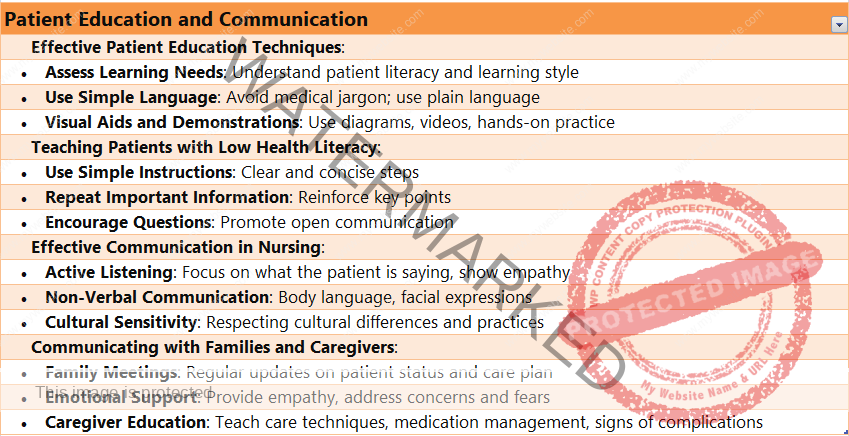
Neurological Nursing and Stroke Care
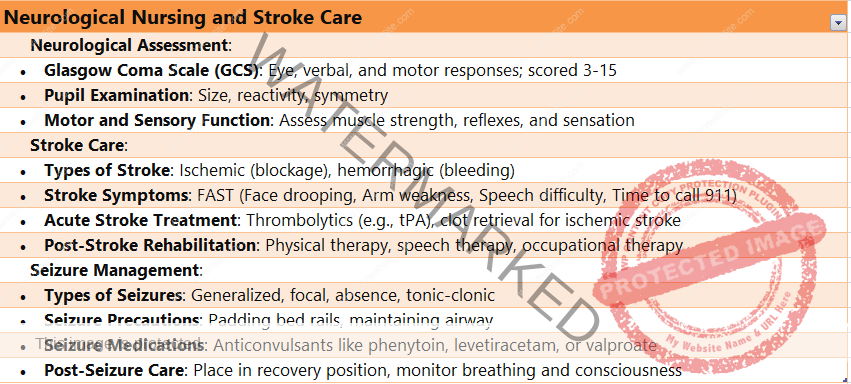
Surgical Specialty Nursing
